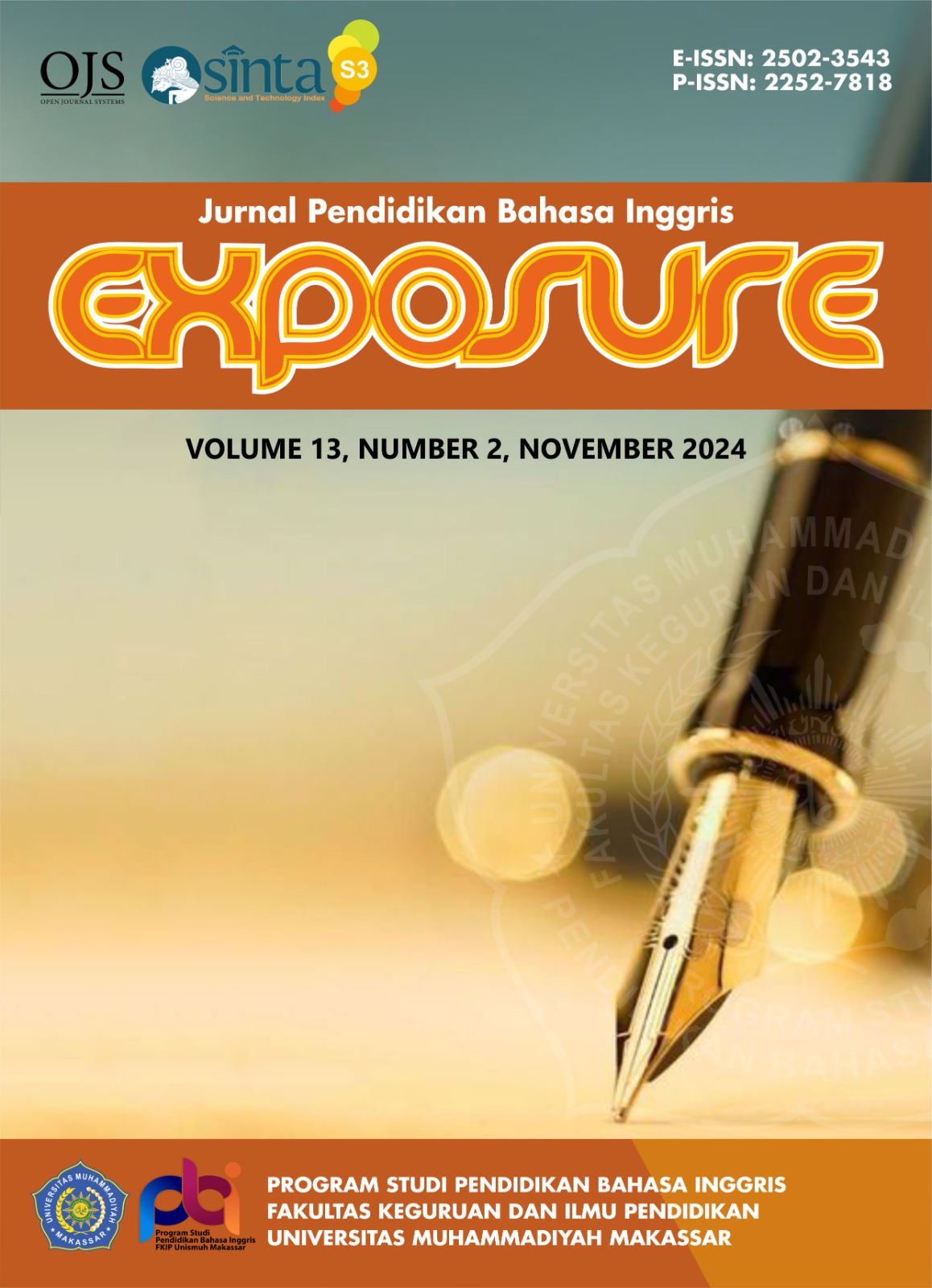PROMOTING ENVIRONMENTALLY FRIENDLY BEHAVIOR THROUGH GREEN ECONOMY-BASED ENGLISH LEARNING AT AL WASHLIYAH UNIVERSITY MEDAN
DOI:
https://doi.org/10.26618/exposure.v13i2.16192Keywords:
Green Economy, Behavior, Learning, Promotion, EnvironmentAbstract
This study explores the impact of green economy-based English language learning on environmental awareness among students at Al Washliyah University Medan. Recognizing the role of education in addressing global environmental challenges, the research aims to assess how incorporating green economy principles into English learning influences students' attitudes and behaviors towards sustainability. The study employs a sample of 32 students and uses multiple linear regression analysis to examine the effects of promotion and environmentally friendly behavior on English language learning. Results show that while promotion does not significantly affect English learning, eco-friendly behavior has a substantial positive influence. Together, promotion and eco-friendly behavior account for 65.2% of the variance in English learning based on the green economy. The findings underscore the potential of integrating green economy concepts into educational curricula to promote environmental awareness and foster sustainable behaviors in higher education.
References
Al-Hamrani, A., Kim, D., Kucukvar, M., & Onat, N. C. (2021). Circular economy application for a Green Stadium construction towards sustainable FIFA world cup Qatar 2022TM. Environmental Impact Assessment Review, 87. https://doi.org/10.1016/j.eiar.2020.106543
Bergius, M., Benjaminsen, T. A., Maganga, F., & Buhaug, H. (2020). Green economy, degradation narratives, and land-use conflicts in Tanzania. World Development, 129. https://doi.org/10.1016/j.worlddev.2019.104850
Confente, I., Scarpi, D., & Russo, I. (2020). Marketing a new generation of bio-plastics products for a circular economy: The role of green self-identity, self-congruity, and perceived value. Journal of Business Research, 112, 431–439. https://doi.org/10.1016/j.jbusres.2019.10.030
Droubi S, G. A. F. F. de M. A. H. RJ. (2013). Transforming education for the just transition. Energy Research & Social Science. https://www.sciencedirect.com/science/article/pii/S2214629623001500
Herman Fassou Haba, C. B. , O. D. (2023). Green consumer research: Trends and way forward based on bibliometric analysis. Cleaner and Responsible Consumption. www.journals.elsevier.com/cleaner-and-responsible-consumption
Sugiono. (2016). Metode penelitian pendidikan : pendekatan kuantitatif, kualitatif, dan R&D (Vols. 979-8433-71–8). ALFABETA. https://elibrary.bsi.ac.id/readbook/204383/metode-penelitian-pendidikan-pendekatan-kuantitatif-kualitatif-dan-r-d.html
Suharsimi Arikunto. (2016). Prosedur penelitian : suatu pendekatan praktek / Suharsimi Arikunto. Rineka Cipta. https://inlislite.uin-suska.ac.id/opac/detail-opac?id=3766
Downloads
Additional Files
Published
Issue
Section
License
Authors who publish with this journal agree to the following terms:
In order to assure the highest standards for published articles, a peer review policy is applied. In pursue of the compliance with academic standards, all parties involved in the publishing process (the authors, the editors and the editorial board and the reviewers) agree to meet the responsibilities stated below in accordance to the Journal publication ethics and malpractice statement.
Duties of Authors:
- The author(s) warrant that the submitted article is an original work, which has not been previously published, and that they have obtained an agreement from any co-author(s) prior to the manuscript’s submission;
- The author(s) should not submit articles describing essentially the same research to more than one journal;
- The authors(s) make certain that the manuscript meets the terms of the Manuscript Submission Guideline regarding appropriate academic citation and that no copyright infringement occurs;
- The authors(s) should inform the editors about any conflict of interests and report any errors they subsequently, discover in their manuscript.
Duties of Editors and the Editorial Board:
- The editors, together with the editorial board, are responsible for deciding upon the publication or rejection of the submitted manuscripts based only on their originality, significance, and relevance to the domains of the journal;
- The editors evaluate the manuscripts compliance with academic criteria, the domains of the journal and the guidelines;
- The editors must at all times respect the confidentiality of any information pertaining to the submitted manuscripts;
- The editors assign the review of each manuscript to two reviewers chosen according to their domains of expertise. The editors must take into account any conflict of interest reported by the authors and the reviewers.
- The editors must ensure that the comments and recommendations of the reviewers are sent to the author(s) in due time and that the manuscripts are returned to the editors, who take the final decision to publish them or not.
Authors are permitted and encouraged to post online a pre-publication manuscript (but not the Publisher’s final formatted PDF version of the Work) in institutional repositories or on their Websites prior to and during the submission process, as it can lead to productive exchanges, as well as earlier and greater citation of published work (see The Effect of Open Access). Any such posting made before acceptance and publication of the Work shall be updated upon publication to include a reference to the Publisher-assigned DOI (Digital Object Identifier) and a link to the online abstract for the final published Work in the Journal.

